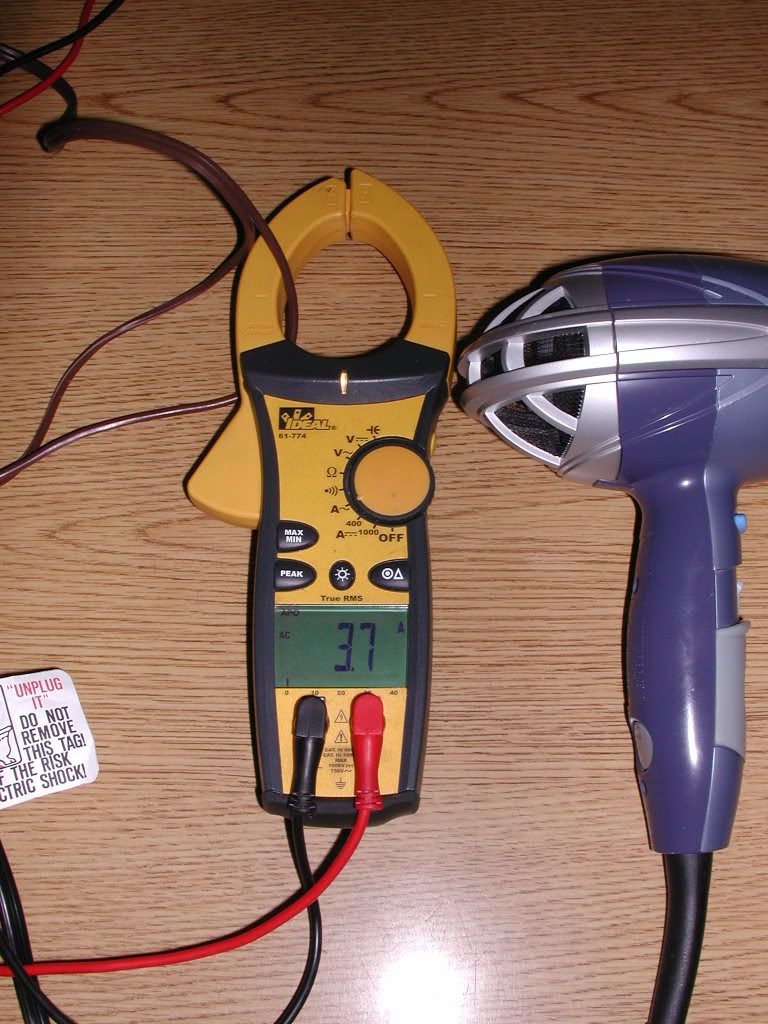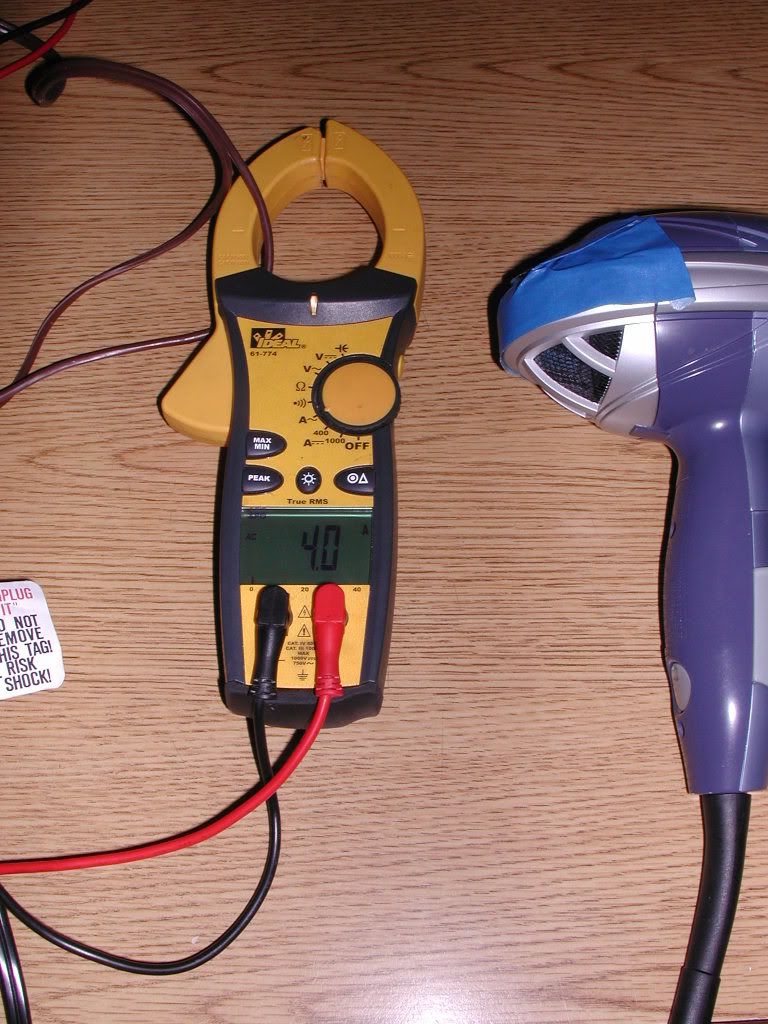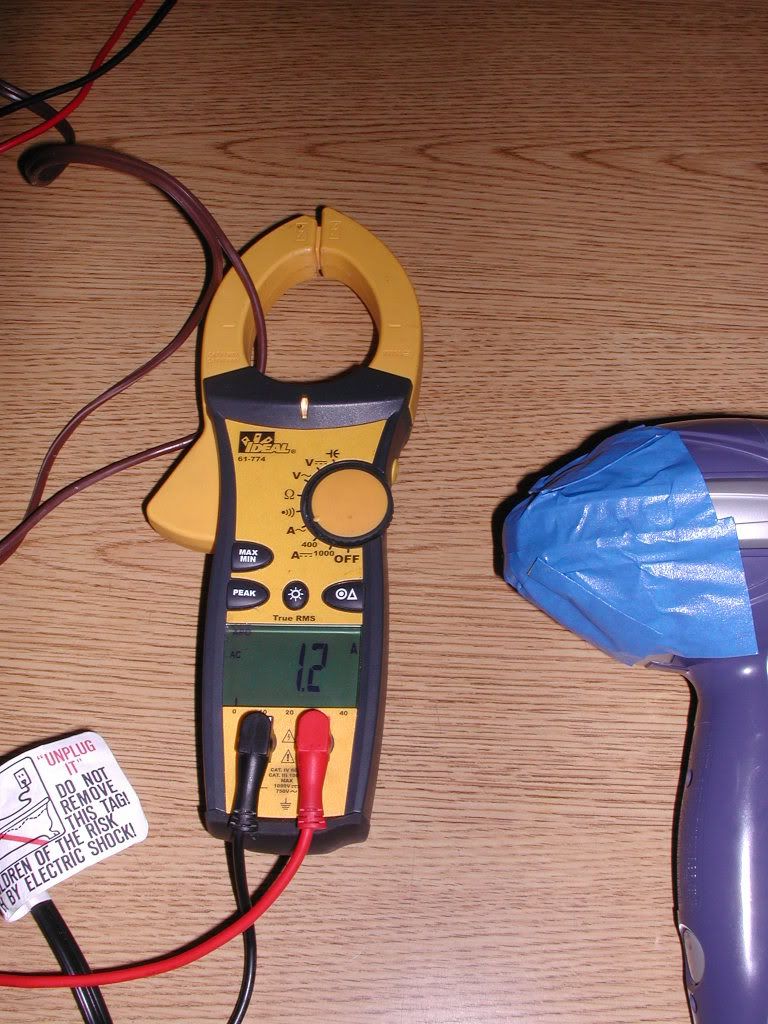- Location
- New Jersey
- Occupation
- Journeyman Electrician
I was having a discussion with a group of electricians the other day about what would happen to the current on a belted fan motor if the supply air to the fan was cut off (damper closed). My response was that the current would go down because the fan would be doing less work (moving less air). No one agreed. I used this example:
I have a shop vacuum running and measure the current,
I put my have tightly over the end of the hose and the motor starts to whine loudly because the fan motor is now running faster. When the motor runs faster it is because it's doing less work therefore the current will go down.
These were my arguments:
> A motor will work harder under load
> Motor draws more current the harder it works
> For a fan, the amount of work is defined by the amount of air that is being moved
Most disagreed, two wanted to think about it, one thought that the logic was correct. Any opinions?
I have a shop vacuum running and measure the current,
I put my have tightly over the end of the hose and the motor starts to whine loudly because the fan motor is now running faster. When the motor runs faster it is because it's doing less work therefore the current will go down.
These were my arguments:
> A motor will work harder under load
> Motor draws more current the harder it works
> For a fan, the amount of work is defined by the amount of air that is being moved
Most disagreed, two wanted to think about it, one thought that the logic was correct. Any opinions?





